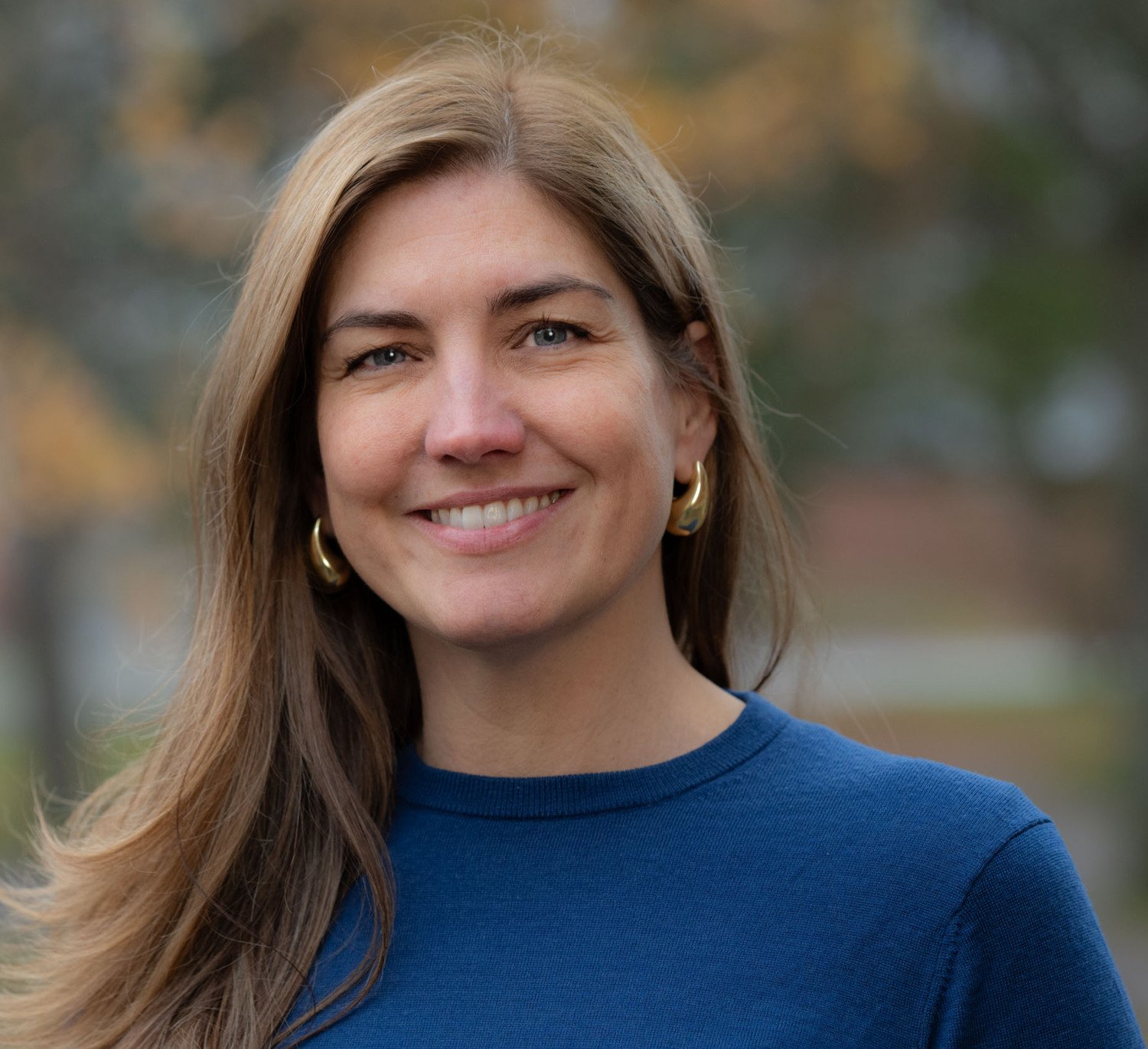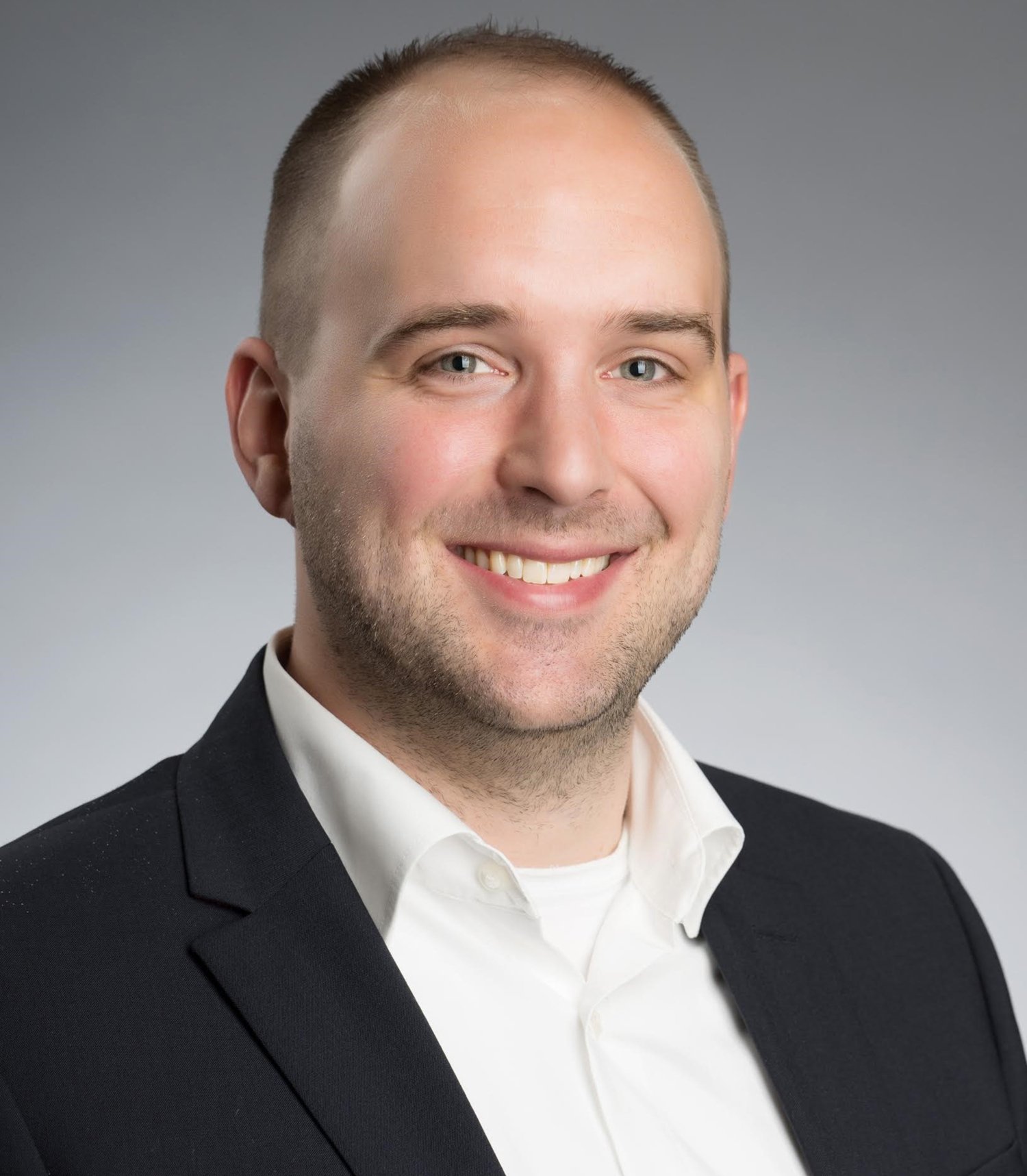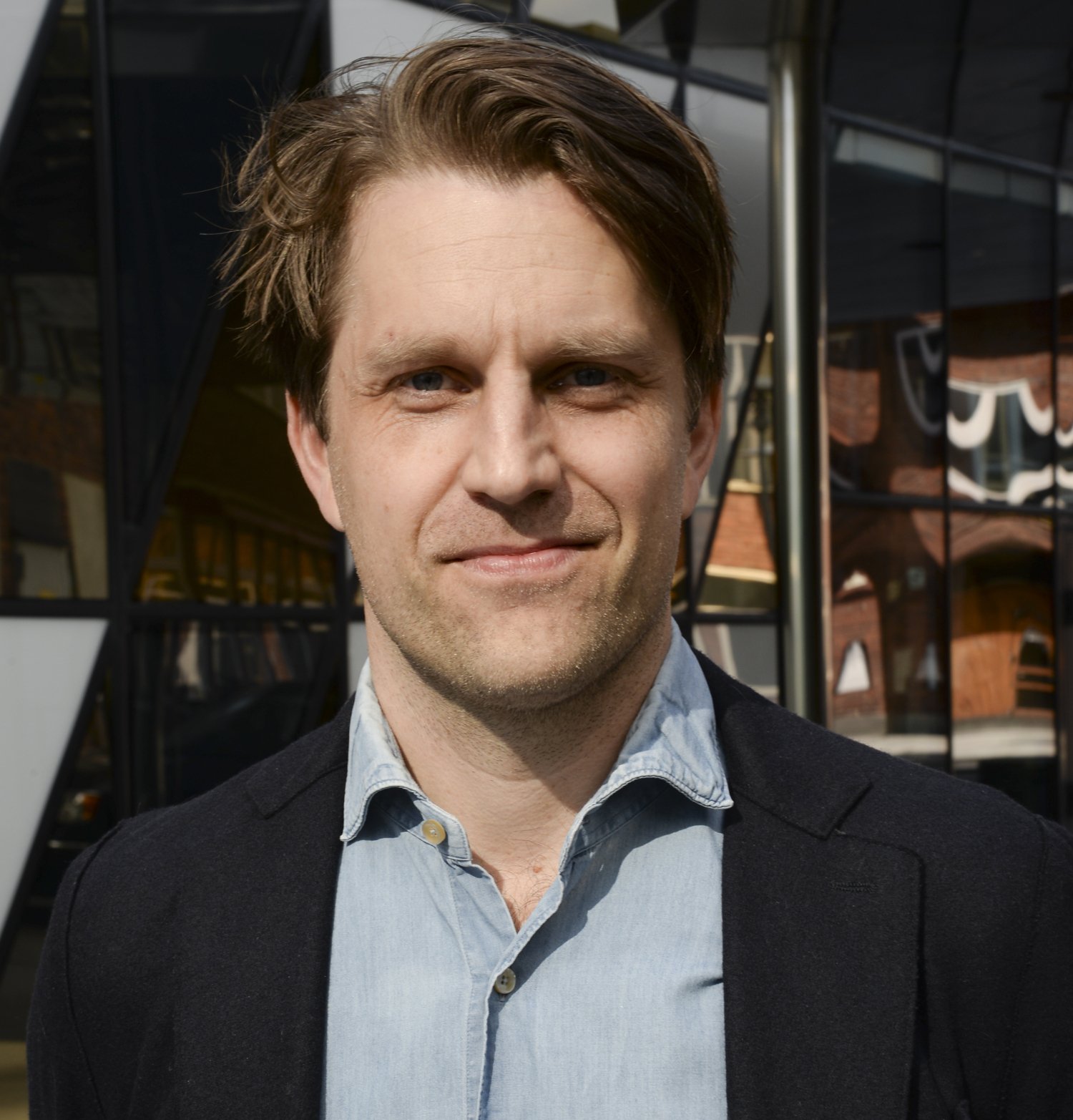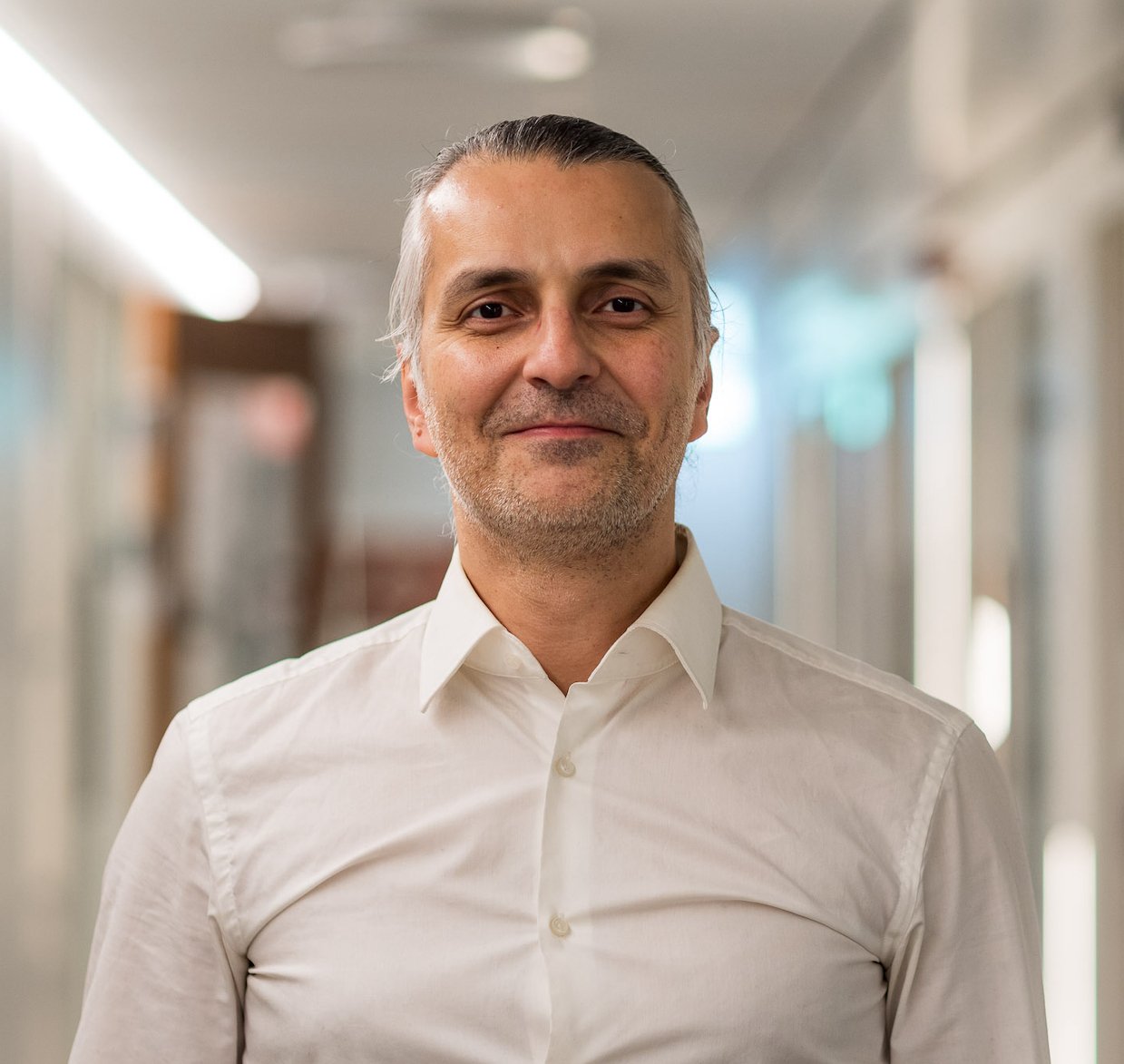KI researchers Emma R. Andersson, Volker Lauschke, Gustaf Edgren and Alireza Salami have been awarded the European Research Council's prestigious consolidation grant and a total of approximately EUR 8 million (about SEK 90 million) for their research.
No fewer than four researchers at Karolinska Institutet have been selected to receive an ERC Consolidator Grant, which is awarded by the European Research Council (ERC) under the EU's Horizon Europe programme for research and innovation. The grant is worth up to EUR two million (just over SEK 20 million) for five years.
High risk and high potential gain
Emma R. Andersson, docent at the Department of Cell and Molecular Biology , Karolinska Institutet, is receiving the grant for her project entitled "LIMITLESS: Direct in-utero engineering of mouse models", which aims to develop a new technique for genetically modifying mice.
Mice are often used as animal models in research on, for instance, how genetic mutations affect health and development. The technique that Dr Andersson is developing makes it possible to influence all cells in the mouse body by introducing the genetic modification into the cell structure of the mouse embryo, which subsequently develops into every cell in the animal.
This is achieved using robotics and a virus to modify the mouse's DNA. By marking individual cells and monitoring them over time, the group will also be mapping how all different cell types in the body are formed.

"If we succeed, the time from idea to complete mouse model will be much shorter, which reduces the cost of trying to answer different research questions," says Dr Andersson . "Since we can study many genes simultaneously in each single mouse, every animal also provides more answers than previously, which will reduce the use of mice. Scientists can also be more creative with this technology to answer new questions. This is a project with a high risk and a high potential gain, and this large long-term grant gives us the confidence to embark on it. I'm delighted and grateful to have been selected out of all these wonderful projects."
New light shed on liver disease
Volker Lauschke , professor at the Department of Physiology and Pharmacology , Karolinska Institutet, has been awarded the grant for his project entitled "3D MASH: Scalable target identification for metabolic liver disease", in which he is studying metabolic dysfunction-associated steatohepatitis (MASH), what was previously called fatty liver disease.
MASH affects roughly six per cent of the general public and up to 50 per cent of all people with obesity. There is currently only one approved treatment and it is effective on barely a third of patients.
Professor Lauschke aims to ascertain how signals from other tissues than the liver, such as fat and muscles, affect the disease. Using tissue samples from patients with MASH and healthy controls, the researchers cultivate cells in their own self-designed cultivation system and work out which substances the tissues use to communicate with each other.

"While our research will give rise to new biological knowledge about MASH, we also hope to deliver new drug candidates targeted at signal pathways that we identify," he says. "Since we use cells taken directly from patients, we reduce the use of laboratory animals and obtain results that can be translated to humans more accurately."
The method can also be used to study other diseases involving inter-tissue communication, such as when cancer cells metastasise to other parts of the body.
Safer blood transfusions
Gustaf Edgren, docent at Karolinska Institutet's Department of Medicine in Solna has been awarded the grant for his project entitled "ASTUTE: Advanced Studies in Transfusion Epidemiology: Using 'Big Data' to safeguard the blood supply of the future".
Safe blood transfusions are a critical public health issue. However, blood safety often focuses on already known infectious diseases and overlooks the effects on donor health. This is something Dr Edgren wants to change.

"We don't yet know all the biology of what happens when you get a blood transfusion or donate blood, and what mechanisms could have adverse health outcomes," says Gustaf Edgren . "Therefore, we're trying to look for unknown connections, such as unknown transfusion infections and unknown negative effects of donating blood. This grant allows to do some large-scale thinking about methodologies and data collection and we hope to provide important answers for transfusion safety."
Dr Edgren and his group will be updating an existing database of blood donors and transfusion patients in Sweden, which they will then use to make open-ended searches for links between diseases and transfusion with the help of traditional epidemiological methods and machine learning, and to examine the health effects of giving blood.
They will also be following up one of their earlier finds: that spontaneous intracerebral haemorrhages seem to be transferrable through blood transfusion.
Studying the ageing brain
Alireza Salami , researcher at the Department of Neurobiology, Care Sciences and Society , Karolinska Institutet, and docent at Umeå University, has been awarded the grant for his project entitled "DOPAGE: Unlocking the Dynamics of Dopamine in aging: Balancing Pre- and Post-Synaptic Mechanisms for Optimal Brain Function across the adult lifespan".
Cognitive functions such as memory often decline as we age. The aim of this project is to identify the modifiable brain mechanisms underlying cognitive decline, and, crucially, finding ways to delay it.
Alireza Salami will be studying the possible links between these cognitive impairments and the important brain neurotransmitters, dopamine and noradrenalin. He will be looking at the dopamine system in its entirety, from production to signalling, and how it interacts with noradrenaline, a relationship that has not yet been empirically established in the ageing process.

"The grant enables us to conduct one of the largest and most comprehensive MRI and PET studies to unlock molecular and functional mechanisms underlying cognitive impairment in ageing," he says. "Once we've understood them, we'll test whether particular mechanisms in the dopamine and noradrenaline system can be manipulated with drugs so that the cognitive functions of certain elderly people can be improved."
Dr Salami is sharing his grant between Umeå University (host institution, 60 per cent) and Karolinska Institutet (40 per cent).
Grants for outstanding researchers
The ERC Consolidator Grant is awarded to outstanding researchers 7 to 12 years post-PhD at a stage in their careers at which they can still consolidate their own independent research group. Applications are assessed through international peer reviews with excellence as the selection criterion.
There were 2,313 ERC Consolidator Grant applications this year, of which 328 (just over 14 per cent) were awarded a grant.
The grants are worth up to EUR two million for five years, with the possibility of an additional EUR one million to cover the costs of relocation to the EU, equipment, access to facilities and other sizeable expenses for experiments or field work. The grants are awarded annually.






